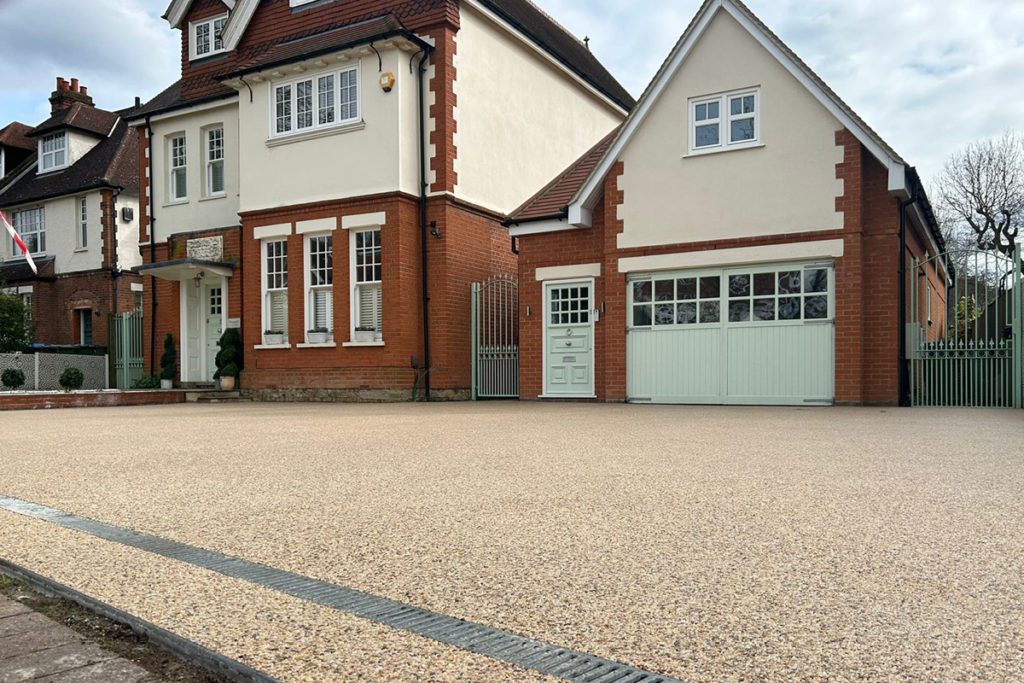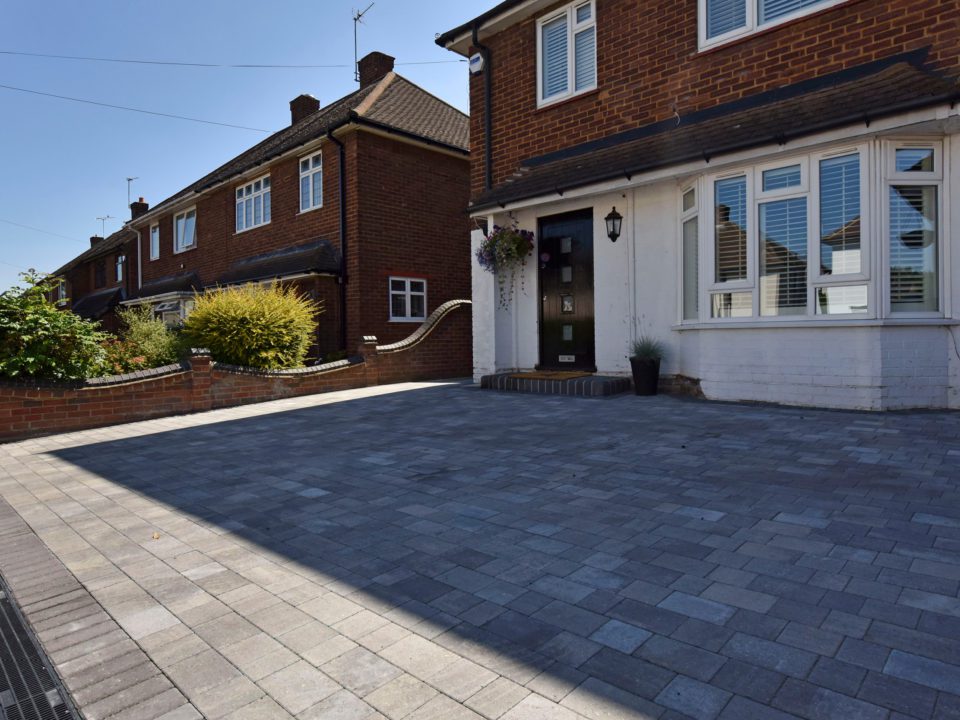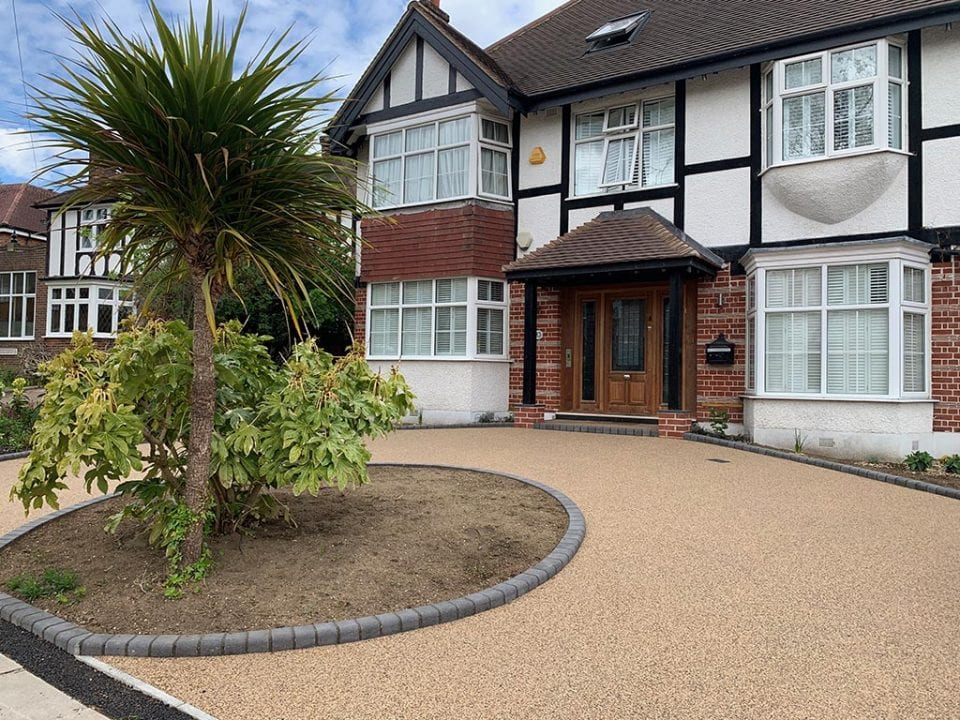

Why Driveway Paving Reviews Matter: A Guide for Homeowners
September 12, 2024Tarmac Driveway Ideas vs. Resin Driveways
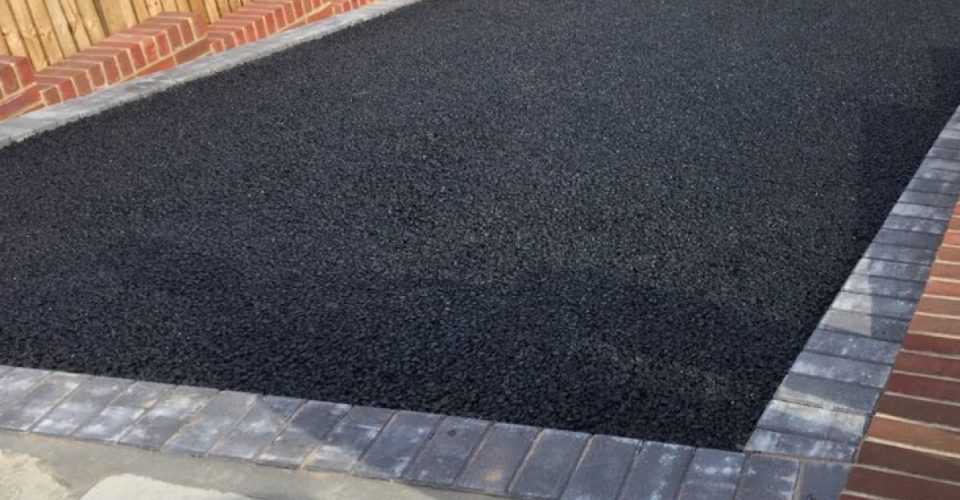
We often get asked by our clients about tarmac driveway ideas. Sometimes we suggest they should also consider whether a resin driveway may be a more suitable option.
While tarmac has long been a traditional choice for driveways, resin-bound surfaces have surged in popularity in recent years, offering a modern and visually appealing alternative.
Choosing the right material can have a significant impact on the aesthetic, durability, and overall value of your property. In this article, we’ll explore both tarmac driveway ideas and resin driveways so you can make a more informed decision.
What is a resin driveway?
A resin driveway is created by mixing natural aggregate (stone, gravel, etc.) with a clear UV-stable resin to form a firm yet flexible surface. There are two main types of resin driveways: resin-bound and resin-bonded.
Our resin bound system allows water to drain through, making it a sustainable and environmentally friendly choice.
What is a Tarmac Driveway?
Tarmac, short for tarmacadam, is a traditional material made from crushed stone and tar that is rolled and compacted to create a hard surface. Tarmac driveways are known for their durability and cost-effectiveness, having been used extensively for roads and driveways for decades.
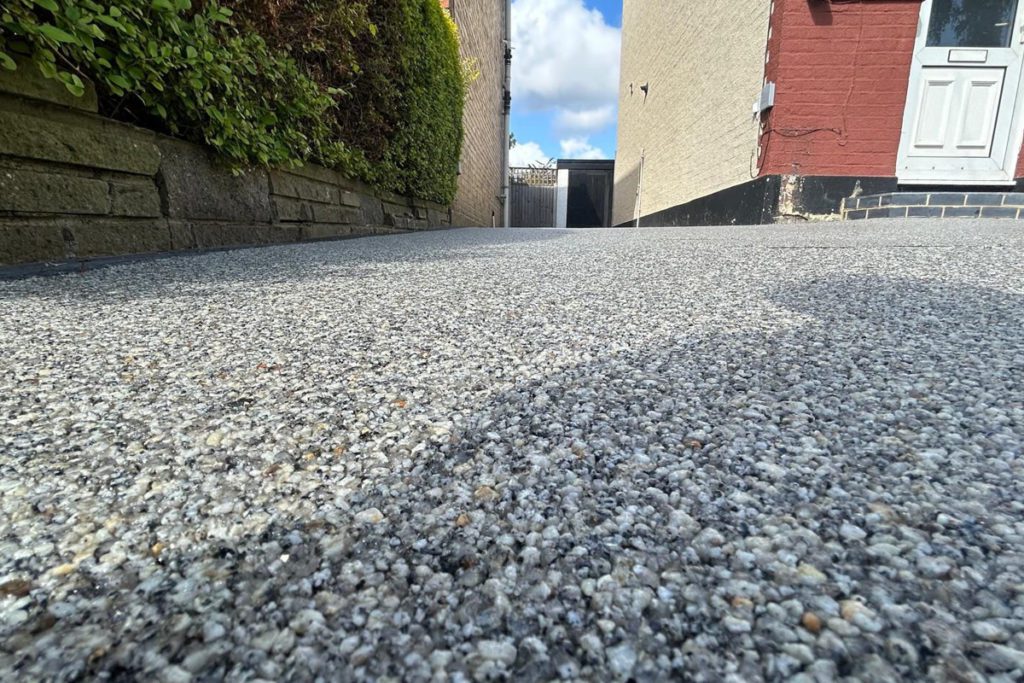
The Aesthetic Appeal of Resin and Tarmac Driveways
One of the primary reasons many homeowners are opting for resin driveways over tarmac is the aesthetic appeal.
Resin driveways offer far more versatility in terms of design and colour options. Since resin can be mixed with various natural aggregates, you can create a wide range of textures, finishes, and colours, allowing you to customise your driveway to complement your home’s style and surroundings.
Whether you want a sleek, modern look or a rustic, natural feel, resin gives you the freedom to choose. Additionally, you can incorporate borders or patterns within the design, adding a bespoke, eye-catching touch to your property.
Tarmac may not offer the same variety of colours and patterns, a well-maintained tarmac driveway has a clean, sleek appearance that complements many home styles.
Durability and Longevity
Both resin and tarmac driveways are known for their durability.
Tarmac is highly durable and can withstand heavy loads, making it ideal for driveways that see a lot of traffic or for parking multiple vehicles. It also holds up well in various weather conditions, including freezing temperatures and heavy rain.
Resin-bound driveways are highly resistant to wear and tear. The surface is flexible, which helps prevent cracking over time—a common issue with tarmac driveways.
Because resin is permeable, it is also less prone to damage from freeze-thaw cycles, where water seeps into cracks, freezes, and expands, causing the surface to break apart. This quality makes resin an excellent choice for areas with harsh weather conditions.
Low Maintenance
Both tarmac and resin driveways are easy to look after.
One great feature of tarmac is that it requires minimal maintenance. Occasional sealing and filling in any cracks that develop over time can help maintain its appearance and functionality.
Resin surfaces are porous, water drains through easily, reducing the likelihood of puddles and standing water that can lead to issues like moss or algae growth. This drainage feature also helps prevent erosion and flooding, making resin driveways a sustainable option.
Additionally, resin-bound surfaces are resistant to oil spills, weeds, and discoloration. Cleaning a resin driveway is as simple as using a hose or pressure washer to remove dirt and debris. In contrast, tarmac driveways can become stained from oil or fuel spills, and over time, they may require regular re-sealing to maintain their appearance and integrity.
Permeability and Environmental Benefits
Resin-bound driveways are porous, allowing water to naturally drain through the surface. This permeability helps reduce water runoff and contributes to sustainable urban drainage systems (SUDS). In areas with high rainfall, this feature helps to mitigate the risk of flooding, a growing concern for many homeowners.
Tarmac driveways, on the other hand, are (most commonly) non-permeable. This means that water runs off the surface and into storm drains, which can lead to waterlogging or flooding in some cases.
Cost Considerations: Long-Term Value with Resin
Initial costs are often a factor that leads people to choose tarmac over resin, as tarmac is typically cheaper upfront. However, it’s essential to consider the long-term value when making your decision.
While resin driveways may come with a higher initial price tag, they often provide better long-term value due to their durability and lower maintenance requirements. Over time, the costs of maintaining and repairing a tarmac driveway can add up, whereas resin driveways require minimal upkeep and are less likely to need repairs.
Additionally, resin driveways can add significant kerb appeal and value to your property, making them a worthwhile investment for homeowners looking to boost their home’s resale value.
Which driveway is right for you?
If you need any tarmac driveway ideas, or indeed any more advice or guidance on choosing the right driveway for your home, then call Diamond Driveway on 0800 234 3830 or click here to get in touch.


